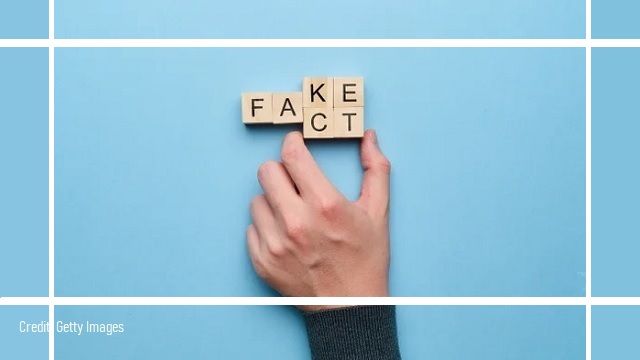Past tyrants called it ‘control of information’ today’s tyrants call it ‘fact checking’

“Withholding information is the essence of tyranny. Control of the flow of information is the tool of the dictatorship.” ―
“Everyone has the right to freedom of opinion and expression; this right includes freedom to hold opinions without interference and to seek, receive and impart information and ideas through any media and regardless of frontiers.” ― Universal Declaration of Human Rights
“In an age in which the media broadcast countless pieces of foolishness, the educated man is defined not by what he knows, but by what he doesn’t know.” ―
“Men more frequently require to be reminded than informed.” ― The Rambler
In a October 25, 2020 article in Scientific America titled “The Psychology of Fact-Checking” Stephen J. Ceci and Wendy M. Williams wrote:
Fact-checkers aim to get closer to the truth, but their biases can shroud the very truth they seek.
Distortions and outright lies by politicians and pundits have become so common that major news outlets like the Associated Press, CNN, BBC, Fox News, and Washington Post routinely assign journalists and fact-checkers to verify claims made during stump speeches and press briefings. The motivation to uncover falsehoods and misleading statements taken out of context is laudable. But when it comes to real-world complexities, the trouble is that people often see different things when looking at the same event, a phenomenon repeatedly documented by psychologists.
Laboratory studies reveal that, when shown a video of a group of protesters, people see either a peaceful protest or an unruly mob blocking pedestrian access, depending on their sociopolitical beliefs. The world outside the lab shows similar biased perception: For example, 68 percent of Republicans consider the videotaped demonstrations in Portland, Ore., Kenosha, Wisc., and New York City to be riots, versus only 30 percent of Democrats, according to a Fox News poll released in September. Journalists and fact-checkers are human beings subject to the same psychological biases as everyone else—and their analyses of what constitute “facts” is affected by their own political and ideological values, resulting in what psychologists term selective perception.
Enter Media Bias and the Fact Checkers
Americans are now faced with three existential threats to the real facts and the whole truth and nothing but the truth:
- Fake news.
- Fact checkers.
- and the Disinformation Governance Board.
In an October 6th, 2020 video posted on Twitter John Stossel describes his war with Facebook “fact checkers,” who deboosted and put a warning onto his video about forest fires.
A Facebook “fact checker” put a libelous “fact-check” on my recent video with @ShellenbergerMD about wildfires.
I appealed, but guess what: the appeal goes to… the same “fact-checker” who smeared me to begin with! pic.twitter.com/DiWvIW0zcc
— John Stossel (@JohnStossel) October 6, 2020
When he finally gained access to the fact checking organization, called “Climate Feedback,” they acknowledged that his video was unfairly censored. So what happened?
The scientist at Climate Feedback, Stefan Doerr, who to his credit was willing to speak with Stossel about this, said the video was probably flagged because Stossel interviewed Michael Shellenberger.” Or as Doerr put it, “my assumption is that because Shellenberger pops up in there, and his statements have basically been shown to be partially wrong…”
“Partially wrong.”
On the other hand, “partially wrong” in this case also means “mostly right.”
Myths versus Fact Checkers
ommencement address at Yale University on June 11th, 1962 said,
“The great enemy of truth is very often not the lie–deliberate, contrived and dishonest–but the myth—persistent, persuasive and unrealistic.”
Our contributors have done a series of columns on myths that biased fact checkers find to be the truth.
Here are some examples:
- THE THREE GREAT MYTHS: Diversity, Equity, Inclusion
- VOTER ID LAWS: And The Many Myths of ‘Voter Suppression’
- Dispelling 3 Common Myths About Abortion
- 3 Environmental Doomsday Myths, Debunked
- Big Tech Doesn’t Censor Conservatives and Other Myths
- 6 Common Media Myths About Gun Control
We have looked at the facts and by doing so we have exposed the myths plaguing our culture.
The Bottom Line
Those seeking the truth are now faced with a dilemma. Do they trust their elected leaders, the legacy media, social media and their friends and neighbors?
Stephen J. Ceci and Wendy M. Williams concluded:
Having each side’s fact-checkers checked by the other side’s fact-checkers could lead to an infinite regress toward an uncertain truth. But this is preferable to belief in a truth that may not exist. Adversarial fact-checkers would debate the same “evidence” and ensure a balanced presentation of the facts. This may not guarantee that fact-checkers will agree or even that readers will discern the truth. But it will reveal the sometimes-tenuous nature of fact-checkers’ claims and the psychological context in which human cognition unfolds—and this would be a meaningful barrier to the spread of fake news and the creation of false beliefs among voters.
The truth, not the fact checkers, will set you free.
©Dr. Rich Swier. All rights reserved.


Leave a Reply
Want to join the discussion?Feel free to contribute!